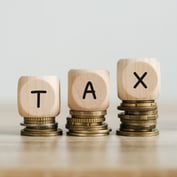Bill Gross, who built a career and a $1.9 billion personal fortune as a bond investor, is trying to overcome his reluctance to bet against corporate debt, a position that he said runs contrary to his instincts and training.
Gross, who manages the $1.3 billion Janus Global Unconstrained Bond Fund, said he expects corporate-bond prices to fall in part because they’ve risen so fast since mid-February but also because he believes a day of reckoning will come when central banks will no longer be able to prop up assets and investors will withdraw from markets.
“It’s really hard to change your psychological makeup and to be a hedge manager that is comfortable with being short,” he said in an interview with Bloomberg’s Erik Schatzker. “I’m working on it, because I’m an investor that ultimately does believe in the system, but believes that the system itself is at risk.”
Central bankers, seeking to stimulate economies, have lowered rates below zero in Europe and Japan, driving down returns on national debt, while investors seeking higher yield have pushed up the value of other credit. Stimulus from central banks worldwide has artificially pushed up values of stocks and credit, which has made Gross cautious on such assets, he said.
Eliminating credit as an investment means “not buying stocks, not buying high-yield bonds,” Gross said. “It means going the other way, which comes at a price.”
Corporate credit has rallied since a selloff early in the year, with junk-rated bonds delivering gains of almost 14% since the markets bottomed in February. Gross indicated he probably would take a short position via credit-default swap indexes rather than shorting companies.
To take risk, Gross said he’s still selling protection against bond market volatility, a favorite trade in recent years, but one that’s becoming less attractive.
“I’m toning it back,” Gross said. “It’s part of me, OK, and so the Bill on this shoulder has to listen to Bill on this shoulder in order to make a transformation.”
Gross cited a number of scenarios that may prompt him to short credit, including a slowdown in China that would spill over into financial markets, Britain leaving the European Union, an escalation of problems in Greece or Brazil. Another such scenario is if the U.S. Federal Reserve raises interest rates faster than markets can handle, Gross said.








 May 26, 2016 at 09:45 AM
May 26, 2016 at 09:45 AM










